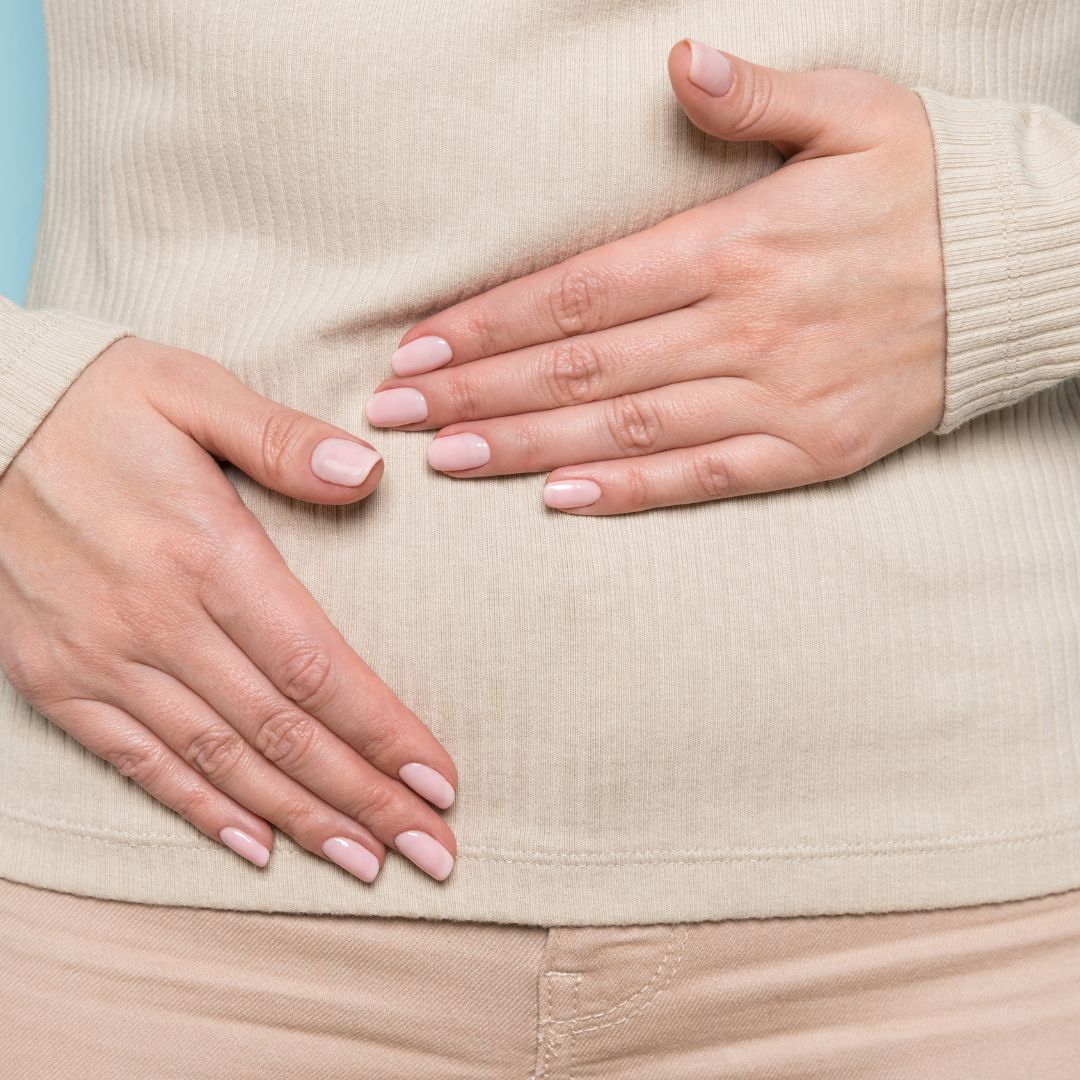Many years ago when I was working part time as a dental hygienist, I noticed a huge difference in my bowel regularity compared to my husband. I simply could not understand how we both ate the exact same diet and yet, he would effortlessly eliminate his bowels every single morning, while my body seemed to have a schedule of its own. Although I did also empty my bowels daily for the most part, the time of day in which this happened was completely unknown to me. This actually made my life a little miserable as my urge to go to the toilet would come up at inconvenient times in the day (like work) and I would suppress this urge until I got home where I could feel more comfortable. I never considered myself to have any actual gut problems as I did not have any pain or bloating and I didn’t struggle with constipation or diarrhoea, I simply just couldn’t get my bowels moving in an orderly fashion like my husband did, and this made me jealous!
There were a few things at play with my digestion at the time. The first was that I was in the midst of an anxiety disorder, I hated my job and was overly stressed and rushed every morning before going to work. The stress was contributing to erratic bowel movements. The second was that I was working part time and so my sleep schedule was also erratic. I would sleep in on my days off. This throws off the circadian rhythm which also throws off bowel regularity. The third was simply that I was a woman with a menstrual cycle.
The current understanding is that daily elimination of the bowels in the morning is the most ideal for health. Preferably within an hour or so of waking up. For the most part, this is what comes naturally for the majority of people, but for many people, especially women, this simply is not the case. There are many factors that affect gut health and gut motility. Gut microbiome dysbiosis may be responsible for a wide variety of gut problems (read my article on the gut microbiome and hormones here ) but dysbiosis is not the only factor in gut health. For most people, the efficiency of their digestion is dependent on a number of different factors including genetics, stress response, the gut brain axis and hormones. These factors put women at greater risk of digestive discomfort compared to men. Women have a more sensitive stress response in comparison to men which contributes to increased anxiety disorders among women (2). This can then influence digestion and severity of gut symptoms. Unlike men, women also have cyclical hormones which strongly influence gut regularity, motility and quality of stool. These factors combined likely contribute to why women are generally reported to experience more IBS than men (1).
The following article will outline some of the ways the hormones of the menstrual cycle can impact digestion for women and potentially make symptoms of IBS worse.

Menstrual Phase: Estrogen and progesterone are lower during this time, but prostaglandins are elevated. Elevated prostaglandins may cause increased nausea, bloating, abdominal distention, and pain during menstruation. Prostaglandins also stimulate the motor activity of the gut, which can cause looser stools and increased frequency. The menstrual phase is the most symptomatic time of the menstrual cycle and is generally the time when IBS symptoms are worse (3).
Follicular Phase: Estrogen begins to rise. Estrogen reacts with serotonin produced in the gut, increasing serotonin levels. Serotonin is seen mostly as a mood chemical responsible for keeping depression and anxiety at bay, but actually over 90% of all serotonin is produced in the gut and in the gut the main role of serotonin is to increase gut motility. For most women digestion is smooth and regular in the follicular phase, however too much serotonin, potentially caused by an excess of estrogen may lead to loose stools, pain and nausea, especially nearing ovulation when estrogen is at its highest. Generalised slow serotonin, which may also be associated with low estrogen, might lead to constipation. It is unlikely that estrogen would be low enough to cause constipation in a regular cycling woman but this may in part explain why constipation prevalence increases at peri menopause and menopause, when estrogen is lost. Despite a loss of estrogen, increased cortisol and stress still remain the biggest known hormonal triggers for constipation in women (4).
Ovulatory Phase: At ovulation, estrogen peaks and then drops dramatically, while progesterone rises. This dramatic shift in hormones is a common cause of constipation in the 1-2 days surrounding ovulation. Motility slows with the sudden loss of estrogen at ovulation.
Luteal Phase: Progesterone rises in the early luteal phase and then slowly drops in the late luteal phase. Progesterone slows the bowels. Constipation is common right after ovulation when estrogen is lost and also mid luteal phase when progesterone reaches its highest peak. Progesterone is an anti-inflammatory hormone and so can lower prostaglandin production which stimulate bowel movement and pain. The drop of both progesterone and estrogen in the late luteal phase can cause bloating and increased water retention. As progesterone drops, prostaglandin production increases potentially causing pain and loose stools just prior to the arrival of the next period.
Although bowel irregularity is much more common in women than men, having a knowledge of how menstrual cycle hormones affect digestion, can empower women to take take control of their digestive symptoms. Learning how to tweak diet and lifestyle to better support the changes that occur during the menstrual cycle and help keep bowel movements more regular and less symptomatic. The changes necessary will be different for everyone according to their hormones and unique gut health concerns. For me, I know my gut is happier when I am not stressed, wake up at the same time every day, have good quality sleep, have enough magnesium in my diet, get proper hydration and movement. All of these impact my gut significantly more than the foods I eat. For others it may involve a complete diet overhaul to help increase fibre in the diet. Making use of motility enhancers like ginger and lemon as well as regular intake of foods known known to help with bowel regularity like chia seeds, flax seeds and kiwis may also help at different times of the month. But for the most part, it is important for women not to place unrealistic expectations on their bodies and digestion and understand that a woman’s body is simply not designed to function the same as a mans.
References:
Kim, Y. S., & Kim, N. (2018). Sex-Gender Differences in Irritable Bowel Syndrome. Journal of neurogastroenterology and motility, 24(4), 544–558. https://doi.org/10.5056/jnm18082
McLean, C. P., Asnaani, A., Litz, B. T., & Hofmann, S. G. (2011). Gender differences in anxiety disorders: prevalence, course of illness, comorbidity and burden of illness. Journal of psychiatric research, 45(8), 1027–1035. https://doi.org/10.1016/j.jpsychires.2011.03.006
Pati, G. K., Kar, C., Narayan, J., Uthansingh, K., Behera, M., Sahu, M. K., Mishra, D., & Singh, A. (2021). Irritable Bowel Syndrome and the Menstrual Cycle. Cureus, 13(1), e12692. https://doi.org/10.7759/cureus.12692
Callan, N. G. L., Mitchell, E. S., Heitkemper, M. M., & Woods, N. F. (2018). Constipation and diarrhea during the menopause transition and early postmenopause: observations from the Seattle Midlife Women’s Health Study. Menopause (New York, N.Y.), 25(6), 615–624. https://doi.org/10.1097/GME.0000000000001057










